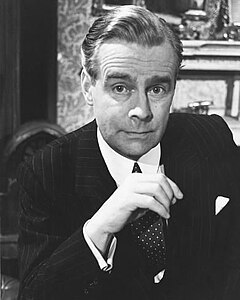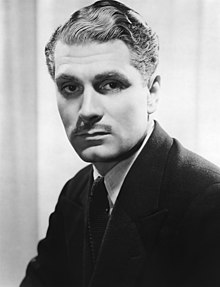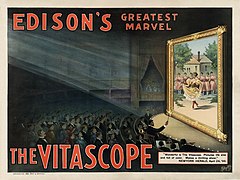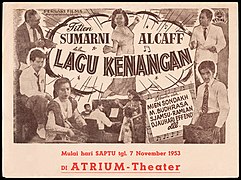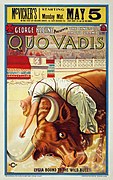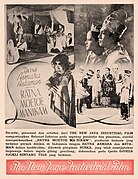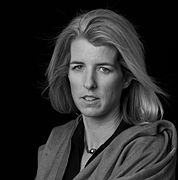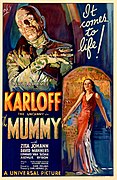Portal:Film
In today's world, Portal:Film has become a topic of great relevance and interest to a wide spectrum of people. From its impact on society to its global implications, Portal:Film has captured the attention of academics, scientists, politicians and ordinary citizens alike. Its influence covers different fields, from economics to culture, including technology and the environment. In this article, we will delve into the world of Portal:Film to explore its different facets and understand its importance and impact today.
The Film Portal
 A film – also called a movie, motion picture, moving picture, picture, photoplay or (slang) flick – is a work of visual art that simulates experiences and otherwise communicates ideas, stories, perceptions, feelings, beauty, or atmosphere through the use of moving images. These images are generally accompanied by sound and, more rarely, other sensory stimulations. The word "cinema", short for cinematography, is often used to refer to filmmaking and the film industry, and the art form that is the result of it. (Full article...)
A film – also called a movie, motion picture, moving picture, picture, photoplay or (slang) flick – is a work of visual art that simulates experiences and otherwise communicates ideas, stories, perceptions, feelings, beauty, or atmosphere through the use of moving images. These images are generally accompanied by sound and, more rarely, other sensory stimulations. The word "cinema", short for cinematography, is often used to refer to filmmaking and the film industry, and the art form that is the result of it. (Full article...)
Featured articles -
Star Trek is a 2009 American science fiction action film directed by J. J. Abrams and written by Roberto Orci and Alex Kurtzman. It is the 11th film in the Star Trek franchise, and is also a reboot that features the main characters of the original Star Trek television series portrayed by a new cast, as the first in the rebooted film series. The film follows James T. Kirk (Chris Pine) and Spock (Zachary Quinto) aboard the USS Enterprise as they combat Nero (Eric Bana), a Romulan from their future who threatens the United Federation of Planets. The story takes place in an alternate reality that features both an alternate birth location for James T. Kirk and further alterations in history stemming from the time travel of both Nero and the original series Spock (Leonard Nimoy). The alternate reality was created in an attempt to free the film and the franchise from established continuity constraints while simultaneously preserving original story elements.
The idea for a prequel film which would follow the Star Trek characters during their time in Starfleet Academy was discussed by series creator Gene Roddenberry in 1968. The concept resurfaced in the late 1980s, when it was postulated by Harve Bennett as a possible plotline for what would become Star Trek VI: The Undiscovered Country, but it was rejected in favor of other projects by Roddenberry. Following the critical and commercial failure of Star Trek: Nemesis and the cancellation of Star Trek: Enterprise, the franchise's executive producer Rick Berman and screenwriter Erik Jendresen wrote an unproduced film titled Star Trek: The Beginning, which would take place after Enterprise. After the separation of Viacom and CBS Corporation in 2005, former Paramount Pictures president Gail Berman convinced CBS to allow Paramount to produce a new film in the franchise. Orci and Kurtzman were soon approached to write the film, and Abrams was approached to direct it. Kurtzman and Orci used inspiration from novels and graduate school dissertations, as well as the series itself. Principal photography commenced on November 7, 2007, and ended on March 27, 2008. The film was shot in locations around California and Utah. Abrams wanted to avoid using bluescreen and greenscreen, opting to use sets and locations instead. Heavy secrecy surrounded the film's production and was under the fake working title Corporate Headquarters. Industrial Light & Magic used digital ships for the film, as opposed to miniatures used in most of the previous films in the franchise. Production for the film concluded by the end of 2008. (Portal:Film/Featured content)
General images -
Selected image

Ingmar Bergman, taken during production of Wild Strawberries (1957). Bergman was a Swedish film, stage, and opera director. He found bleakness and despair as well as comedy and hope in his explorations of the human condition. He is recognized as one of the greatest and most influential filmmakers of modern cinema.
Did you know...
- ... that the Victory Theatre, the first theater on 42nd Street to show adult movies, later became a children's theater?
- ... that Filipina actress Angel Locsin was recognized for her work in disaster relief, as well as humanitarian aid for internally displaced persons in the Marawi siege?
- ... that the Kill Bill films inspired SZA to write a song about murdering her ex-boyfriend?
- ... that for his first film, Operation Java, director Tharun Moorthy and his production team handpicked all 83 actors rather than doing an open audition for roles?
- ... that actor Tatsunari Kimura ate pancakes and drank coffee while talking for eight hours during the filming of the television drama Old-Fashioned Cupcake?
Selected biography -
Russell Ira Crowe (born 7 April 1964) is an actor. He was born in New Zealand, spending 10 years of his childhood in Australia and residing there permanently by age 21. His work on screen has earned him various accolades, including an Academy Award, two Golden Globe Awards, and a British Academy Film Award.
Crowe began acting in Australia and had his breakout role in the drama Romper Stomper (1992). He gained international recognition for his starring roles as a police detective in the thriller L.A. Confidential (1997) and Jeffrey Wigand in the drama The Insider (1999). Crowe gained wider stardom for playing the title role in the period film Gladiator (2000), winning the Academy Award for Best Actor. Further acclaim came for portraying mathematician John Forbes Nash Jr. in the biopic A Beautiful Mind (2001). He then starred in the war film Master and Commander: The Far Side of the World (2003), the sports drama Cinderella Man (2005), the Western 3:10 to Yuma (2007), the crime drama American Gangster (2007), the thriller State of Play (2009), and the action film Robin Hood (2010). (Full article...)Featured lists -
News
- September 2: Tributes paid to recently deceased US actor Chadwick Boseman
- October 7: Mockumentary Mister America has world premiere
- May 16: Actor Doris Day dies at 97
- January 22: Former U.S. intelligence agent Tony Mendez, architect of 'Argo' rescue, dies at 78
- Upcoming events
WikiProjects
Selected quote
Main topics
| Filmmaking |
|---|
 |
| Glossary |
- Terms - Animation • Beta movement • Camera • Cult film • Digital cinema • Documentary film • Dubbing • Experimental film • Fan film • Film crew • Film criticism • Film festival • Film frame • Film genre • Film journals and magazines • Film industry • Film manifesto • Film stock • Film theory • Filmmaking • History of film • Independent film • Lost film • Movie star • Narrative film • Open content film • Persistence of vision • Photographic film • Propaganda • Recording medium • Special effect • Subtitles • Sound stage • Web film • World cinema
- Lists - List of basic film topics • List of film topics • List of films • List of film festivals • List of film formats • List of film series • List of film techniques • List of highest-grossing films • List of longest films by running time • List of songs based on a film or book • Lists of film source material • List of open content films
Featured content
Subcategories
Subportals
Related portals
Things you can do
- Add
{{portal|Film}}to the See also section of film-related articles. - Tag the talk pages of film related articles with the {{WikiProject Film}} banner.
- Explore the list of English language films without an article
- Check tasks and announcements at WPFILM Announcements.
- Collaborate with other participants at Wikipedia:WikiProject Film.
- Join one of the task forces at Wikipedia:WikiProject Film/Sidebar.
Associated Wikimedia
The following Wikimedia Foundation sister projects provide more on this subject:
-
Commons
Free media repository -
Wikibooks
Free textbooks and manuals -
Wikidata
Free knowledge base -
Wikinews
Free-content news -
Wikiquote
Collection of quotations -
Wikisource
Free-content library -
Wikiversity
Free learning tools -
Wiktionary
Dictionary and thesaurus

















































